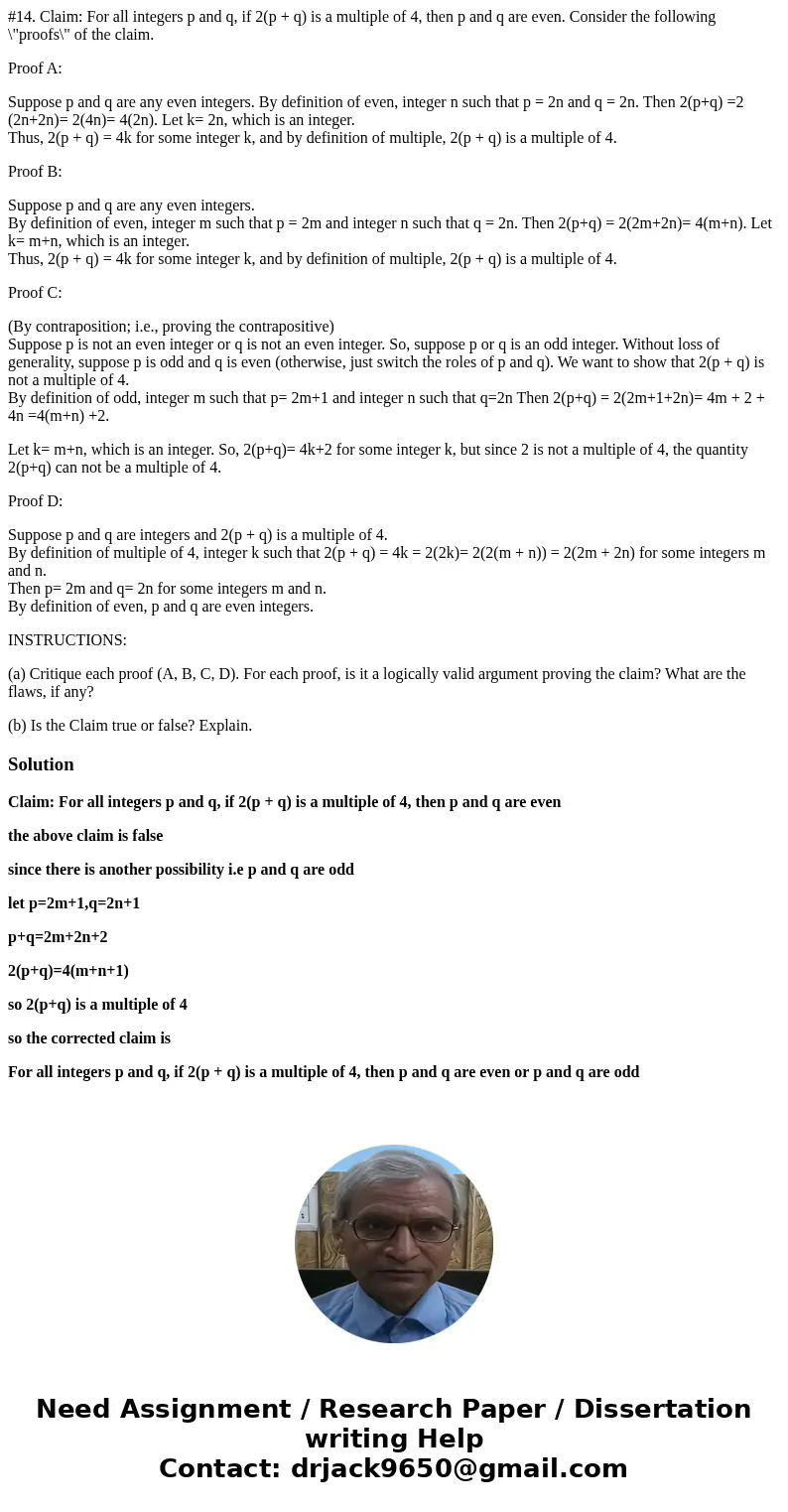14 Claim For all integers p and q if 2p q is a multiple of
#14. Claim: For all integers p and q, if 2(p + q) is a multiple of 4, then p and q are even. Consider the following \"proofs\" of the claim.
Proof A:
Suppose p and q are any even integers. By definition of even, integer n such that p = 2n and q = 2n. Then 2(p+q) =2 (2n+2n)= 2(4n)= 4(2n). Let k= 2n, which is an integer.
Thus, 2(p + q) = 4k for some integer k, and by definition of multiple, 2(p + q) is a multiple of 4.
Proof B:
Suppose p and q are any even integers.
By definition of even, integer m such that p = 2m and integer n such that q = 2n. Then 2(p+q) = 2(2m+2n)= 4(m+n). Let k= m+n, which is an integer.
Thus, 2(p + q) = 4k for some integer k, and by definition of multiple, 2(p + q) is a multiple of 4.
Proof C:
(By contraposition; i.e., proving the contrapositive)
Suppose p is not an even integer or q is not an even integer. So, suppose p or q is an odd integer. Without loss of generality, suppose p is odd and q is even (otherwise, just switch the roles of p and q). We want to show that 2(p + q) is not a multiple of 4.
By definition of odd, integer m such that p= 2m+1 and integer n such that q=2n Then 2(p+q) = 2(2m+1+2n)= 4m + 2 + 4n =4(m+n) +2.
Let k= m+n, which is an integer. So, 2(p+q)= 4k+2 for some integer k, but since 2 is not a multiple of 4, the quantity 2(p+q) can not be a multiple of 4.
Proof D:
Suppose p and q are integers and 2(p + q) is a multiple of 4.
By definition of multiple of 4, integer k such that 2(p + q) = 4k = 2(2k)= 2(2(m + n)) = 2(2m + 2n) for some integers m and n.
Then p= 2m and q= 2n for some integers m and n.
By definition of even, p and q are even integers.
INSTRUCTIONS:
(a) Critique each proof (A, B, C, D). For each proof, is it a logically valid argument proving the claim? What are the flaws, if any?
(b) Is the Claim true or false? Explain.
Solution
Claim: For all integers p and q, if 2(p + q) is a multiple of 4, then p and q are even
the above claim is false
since there is another possibility i.e p and q are odd
let p=2m+1,q=2n+1
p+q=2m+2n+2
2(p+q)=4(m+n+1)
so 2(p+q) is a multiple of 4
so the corrected claim is
For all integers p and q, if 2(p + q) is a multiple of 4, then p and q are even or p and q are odd

 Homework Sourse
Homework Sourse